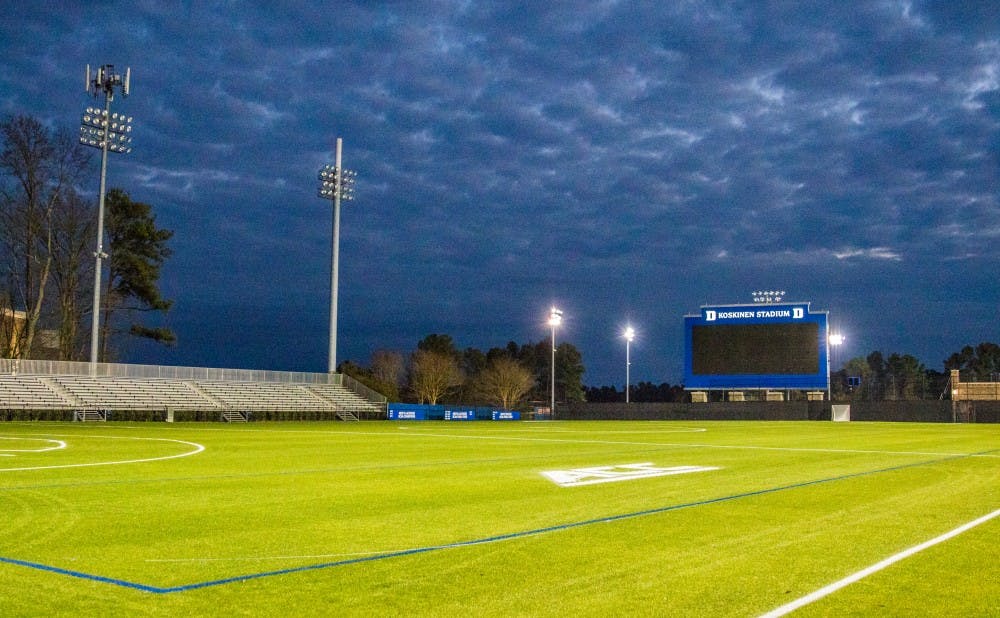UPDATE: During a court hearing Wednesday Feb. 8, a judge considered whether a preliminary injunction should be issued for the soccer player in order to reinstate him at the University.
James Coleman, professor of law at Duke, testified for the player. He said that he reviewed the claims against the player twice and felt that a reasonable person would have concluded that the female student had given consent. The player's lawyers argued that the University improperly allowed the case to be settled by a new panel rather than by the appeals board, a point Coleman also made in his testimony. The player's lawyers argued this was against the Duke Community Standard, but Duke's lawyers argued that no violation of procedure had occurred.
The injunction hearing will continue Thursday, and Stephen Bryan is expected to testify, according to WRAL.
UPDATE: At 1:56 p.m. Wednesday, the lawsuit was sealed to redact student names and other identifying information. According to a copy of the motion to seal the file, obtained by The Chronicle, Duke submitted the motion and requested the Court to temporarily seal the complaint for seven days to remove the information.
"Duke seeks to protect the confidentiality of student disciplinary hearings, including the identities of the students involved," the motion reads.
According to WRAL, the now-sealed lawsuit notes that the men's soccer player is on a student visa from the United Kingdom. There is only one player on the men's soccer roster from the United Kingdom—sophomore midfielder Ciaran McKenna. A team spokesperson declined to comment.
Original story:
A Duke men's soccer player accused of sexual assault has been granted a reprieve, WRAL reported originally reported Wednesday.
WRAL reported that the University suspended the student last Friday after deciding that he had violated the Student Sexual Misconduct Policy. But Superior Court Judge Orlando Hudson issued a temporary restraining order Tuesday against Duke.
The player has filed a lawsuit against Duke and Stephen Bryan, associate dean of students and director of the Office of Student Conduct, according to WRAL. The suit claims that the player faced a violation of his due process rights.
The alleged incident occurred Nov. 14, 2015 when the two students met at a Durham nightclub and then later had sex, according to the lawsuit. The player claims it was consensual, but several months later, the female student filed a complaint with OSC, the suit says. The player's lawsuit alleges that the player was suspended for six semesters effective Jan. 27, which the player says would result in loss of his student visa and damage to his professional aspirations.
According to the lawsuit, the case was originally heard by a Duke disciplinary panel in July 2016, which concluded that the female student did not verbally deny consent although her actions did not give consent either. The player then appealed this ruling. After an appeals board concluded that the panel had not applied the correct "reasonable person" standard pursuant to Duke policy, the lawsuit said the case was supposed to be sent back to the original panel. But the player alleges Bryan set up a new panel to hear the dispute instead, and that this panel found that the female student had in fact verbally denied consent.
The player alleges in the lawsuit that Bryan violated Duke policy in setting up the second panel, especially when he alleges the first panel had partially cleared him of wrongdoing.
According to the Student Affairs website, the Office of Student Conduct decides if a case should be resolved through a hearing panel and if so, it appoints a specially trained three-person hearing panel—typically including two faculty or staff members and one student and “when possible, at least one representative of the complainant’s and respondent’s school[s].”
“A finding of responsibility must be based on a unanimous vote,” the policy reads. “Sanctions of suspension or expulsion must also be supported by a unanimous vote. A majority vote is required for all other sanctions.”
Duke’s requirement of a unanimous verdict from a three-member board is different from that of its peers. According to the New York Times, Duke and Stanford University are the only schools in the U.S. News & World Report’s list of the country’s top 20 colleges that have such a requirement.
Michael Schoenfeld, vice president for public affairs and government relations, said the University had no comment at the time.
Get The Chronicle straight to your inbox
Signup for our weekly newsletter. Cancel at any time.

